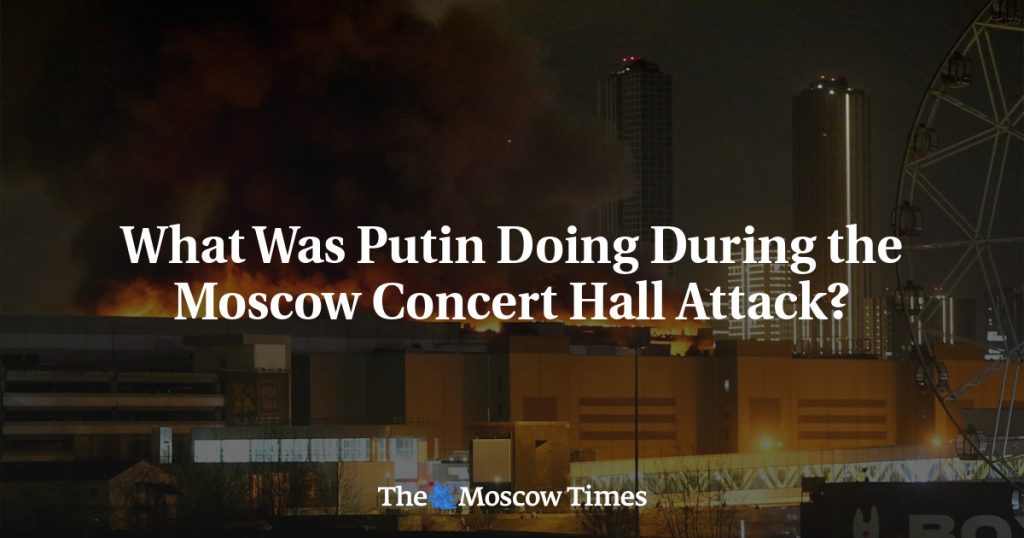The deadly terrorist attack at the Crocus City Hall concert venue near Moscow on March 22, which claimed the lives of at least 137 people, has raised questions about the Russian government’s response and President Vladimir Putin’s actions before, during, and after the attack. The U.S. officials had warned the Russian government about a possible terrorist attack targeting concerts in Moscow 15 days prior to the incident, but the attack still took place. The Islamic State (IS) jihadist group later claimed responsibility for the attack, marking the deadliest terrorist attack in Russia since the 2003 Beslan school siege. This has led to criticism of Russia’s security measures and the government’s handling of the situation.
A timeline of events surrounding the attack sheds light on Putin’s activities at the time. Prior to the attack, on March 7, the U.S. Embassy in Moscow issued a warning about extremists planning to target large gatherings in Moscow, including concerts. The Russian security agency, FSB, announced the killing of IS militants planning an attack on a Moscow synagogue earlier that day. On March 19, Putin addressed FSB chiefs, praising their work in combating terrorism and extremism while criticizing the U.S. warning as provocative and intended to destabilize Russian society. He focused on the situation in Ukraine and strengthening defense capabilities in his victory speech after the presidential election on March 21.
The attack at Crocus City Hall on March 22 involved a group of gunmen entering the venue and indiscriminately shooting at people before setting the building on fire and fleeing the scene. IS claimed responsibility for the attack, which was confirmed by U.S. officials. Despite receiving information and giving instructions on how to proceed during the attack, Putin did not make a public appearance for almost three hours after it started. The delayed response from the Kremlin raised questions about Putin’s whereabouts and actions during the crisis. Deputy Prime Minister Tatyana Golikova announced Putin’s wishes for the injured and thanked medical staff assisting them, while the Kremlin received condolences from leaders of friendly countries.
Nearly 20 hours after the attack ended, Putin finally made a pre-recorded video statement condemning the terrorist act and announcing the detention of the perpetrators. He declared a national day of mourning on March 24 but did not mention IS in his statement, instead suggesting that the shooters were fleeing to Ukraine. A video released by a Kremlin journalist showed glimpses of Putin’s activities in the aftermath of the attack, including visiting an Orthodox church at his official residence to light candles for the victims. The delayed response and lack of direct mention of IS in Putin’s statement raised further criticism and speculation about the government’s handling of the situation.
The aftermath of the terrorist attack in Moscow has highlighted the ongoing concerns about security and counterterrorism measures in Russia. The attack at Crocus City Hall, claimed by IS, has reignited debates about the effectiveness of the government’s security policies and Putin’s leadership in crisis situations. The delayed response from the Kremlin, the lack of direct acknowledgment of IS involvement, and the focus on Ukraine in Putin’s statements have all led to criticism and scrutiny from both domestic and international observers. The attack serves as a stark reminder of the ongoing threat of terrorism and the challenges facing Russia in combating extremism and ensuring the safety of its citizens.


